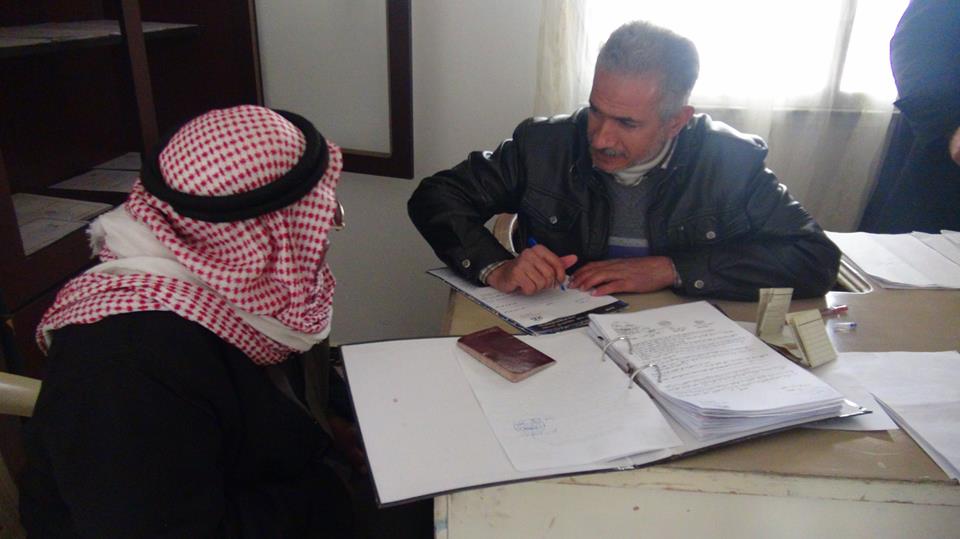Documenting Births, Marriages and Deaths

None of Yousef al-Ahmad’s three young children have ever been officially registered with any local authority. This means that their ability to seek aid and access to education may be at risk.
Al-Ahmed said he had made his peace with their unregistered status. The war had left him with little choice.
“I don’t expect help from other people. The crops I grow are sufficient to support my family,” he said.
“As for schools, they have all closed down due to continuous shelling. Even if they were open, sending my children out each day would endanger their lives.”
But for many others in the Homs countryside, documenting births, marriages and deaths has become extremely problematic.
One man named Mohammad told Damascus Bureau that he dared not visit a government institute for fear of being arrested.
But he said it was necessary to register with the local authorities to gain access to aid, as most local relief organisations verify information about families in need with officials before distributing assistance.
Areas that no longer fall under regime control offer documentation issued by Sharia courts or local councils, although these documents are not recognised by government institutes.
Nevertheless, many residents choose to register with them.
Sheikh Raed Izeddine, head of the Sharia court in the village of Termalla, explained how the process worked.
“To register the birth of a child, the parents are asked to obtain a birth certificate stamped by the midwife or field hospital that supervised the birth. The certificate is then stamped by local council, and then registered at one of our civil registry offices.”
Izeddine said that two copies of every marriage, birth or death certificate were issued, one to be kept by the registry office and the other by the persons concerned.
The registry office also makes electronic copies of all documents for safekeeping.
“Documentation issued by local authorities must be considered official,” said Samer al-Dayi, executive director of the Free Syrian Lawyers Association (FSLA).
“These documents are dated and issued legally. They also carry the signature of the employee issuing them, which makes them official.
“Families seeking documentation will feel more secure with the knowledge that their documents are recognised by other countries and institutes,” he said.
The FSLA works with local councils to provide expert opinion on civil registry matters so as to maintain residents’ legal statuses and protect their rights in accordance with the Syrian constitution and civil law.
Another factor that has encouraged many citizens to resort to local registry offices is the high cost of processing documents at government institutes.
Anas al-Aksah, who deals with civil registrar affairs in rural Homs, said that each marriage and birth certificates costs around 70 US dollars to be processed at a government institute. Death certificates co

st around 160 dollars.
“Between 2015 and 2016, the village of Al-Zafarana alone had five to ten births a day, and an annual total of 620 marriages,” he said.
Despite the cost, some residents continue to register at government offices.
Abu Ahmad, a resident of Al-Dar al-Kabira village, said, “Government documents are recognised inside Syria and abroad, which is why I went there and paid around 70 dollars plus taxes to register my marriage.
I also had to pay a commission to the person handling my documents, and bribes to some employees,” he said.
Residents who find it too costly or dangerous to register at government institutes hope that documents issued to them by civil registries will soon be recognised, so as their children can obtain ID cards and enrol at school.
Mohammad Qara Ali is the pseudonym of a Damascus Bureau contributor from Homs, Syria.
Read the Arabic version of this article here
